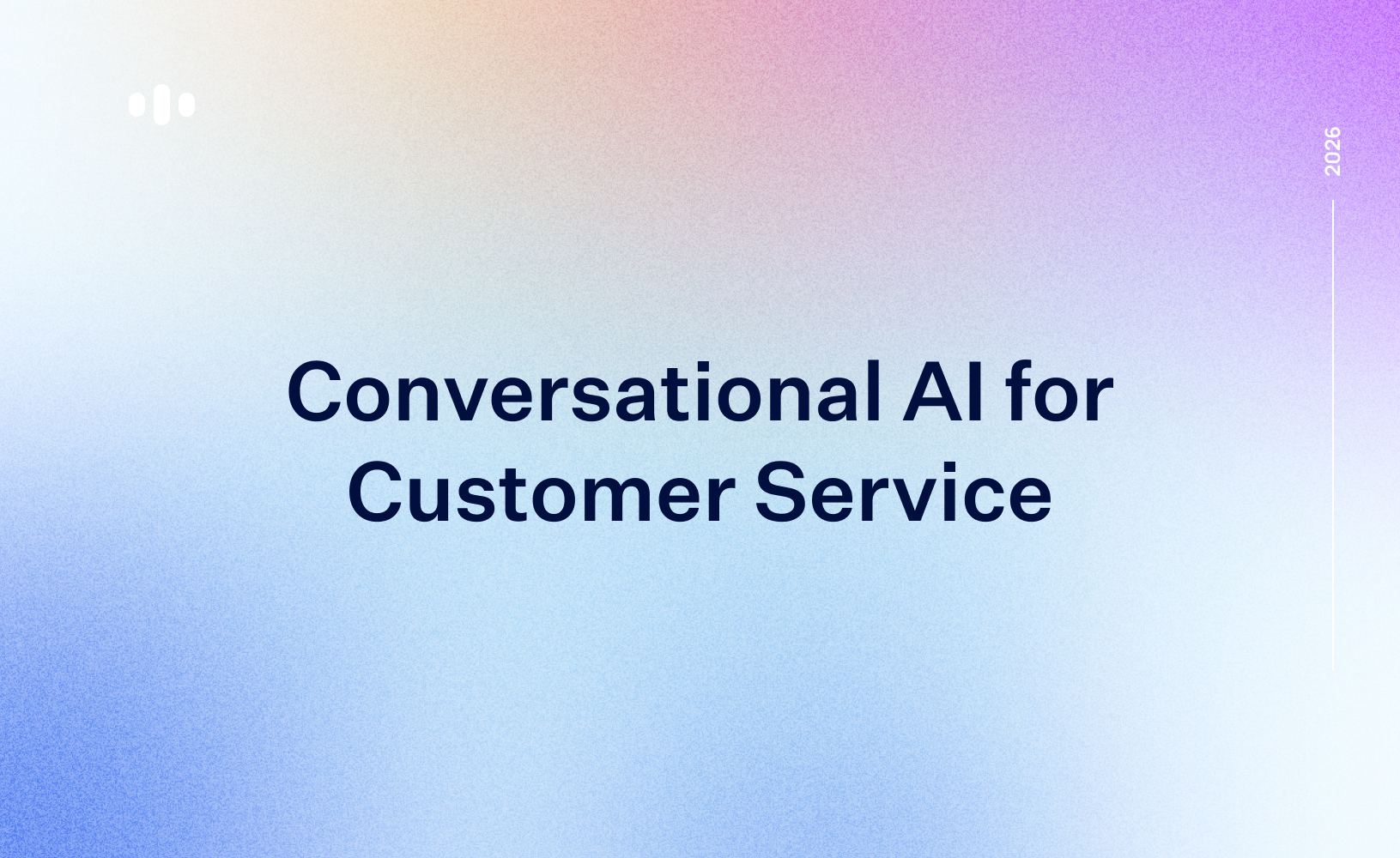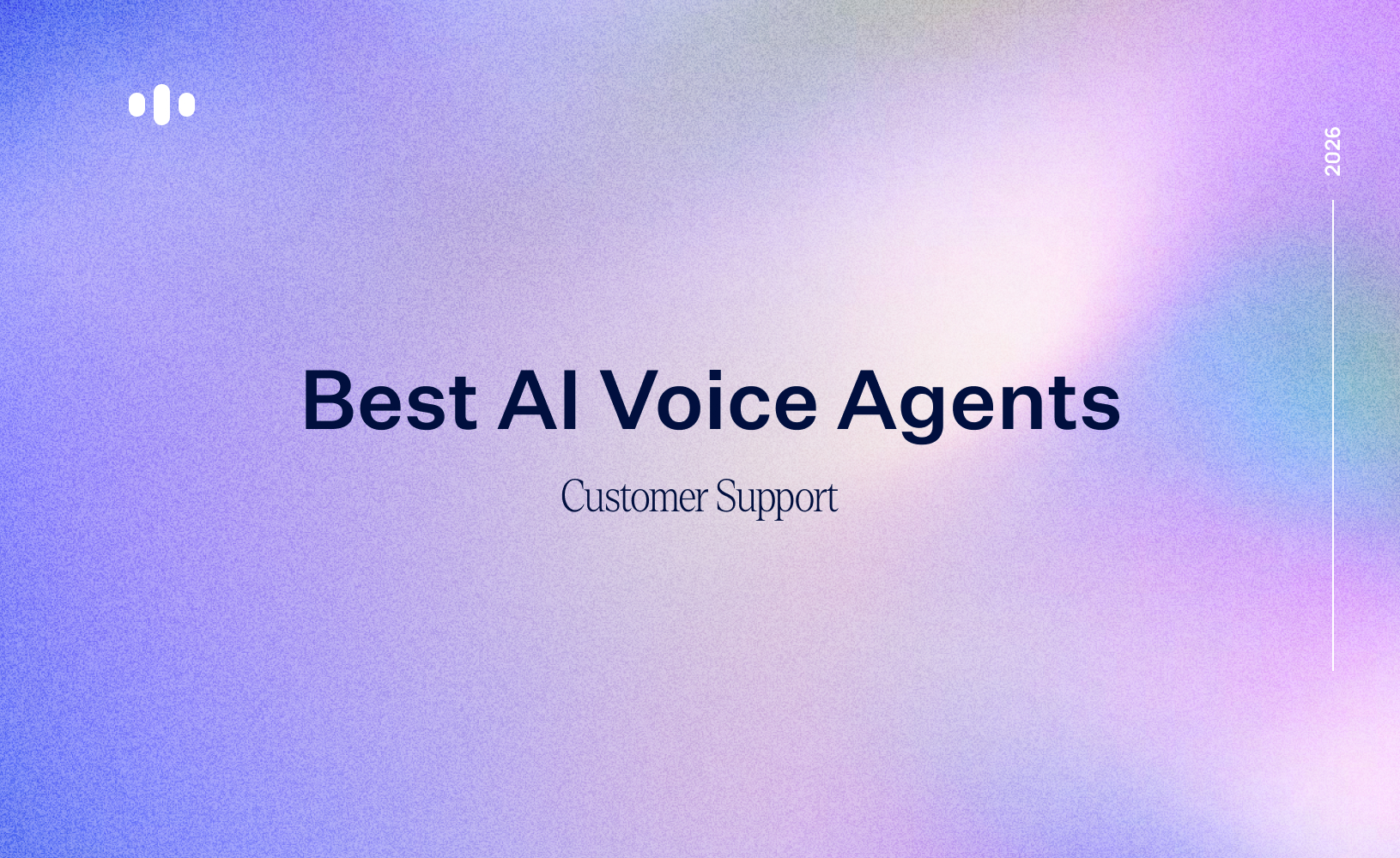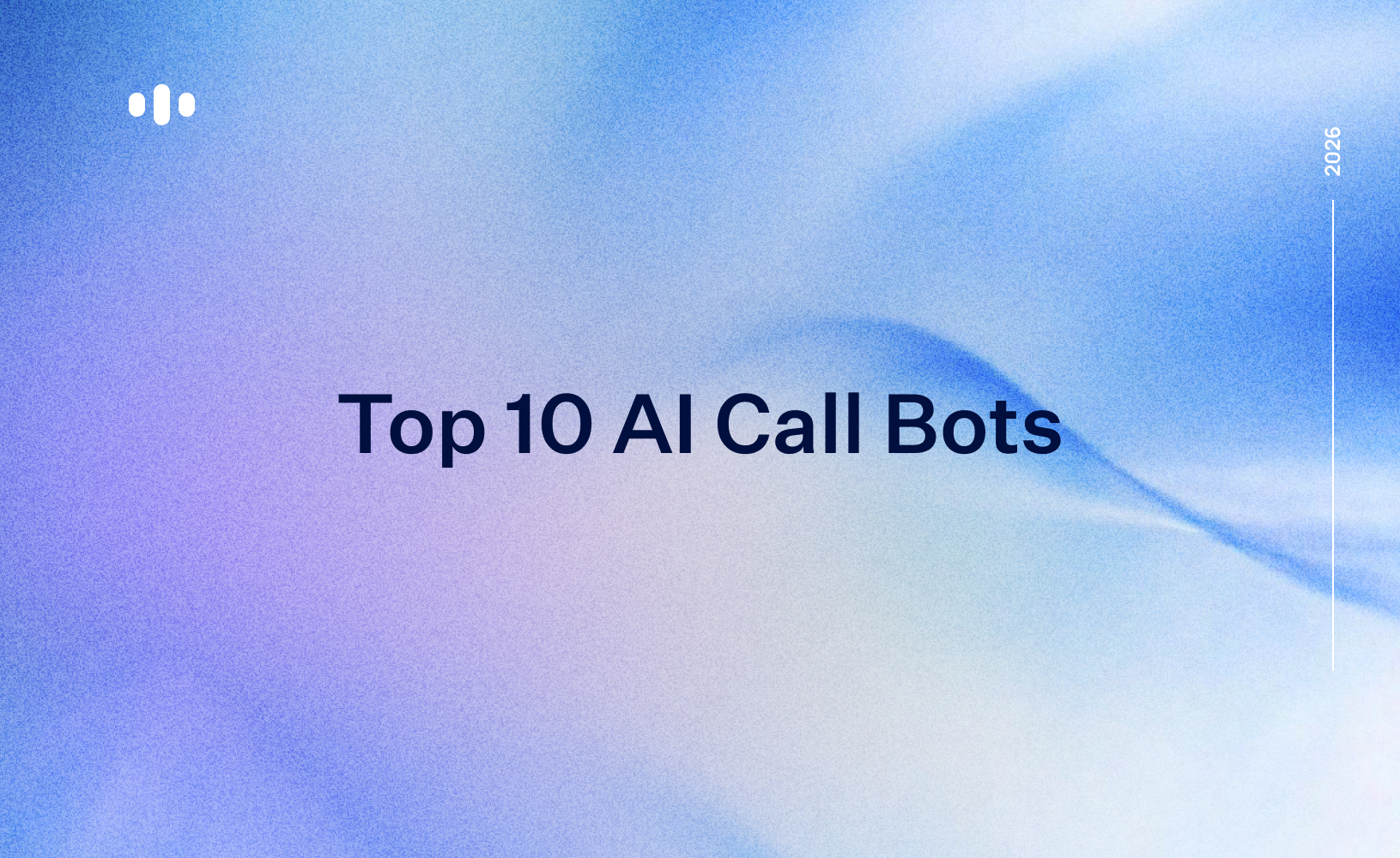- Refilling medication shouldn’t require marathon phone queues. Modern voice-AI can capture a patient’s request, check eligibility, and push a verified order to the pharmacy in the time it normally takes to navigate the first IVR prompt.
- Automation fixes the hidden bottleneck: Up to 30% of all inbound calls to primary-care offices involve routine refill requests (MGMA Stat). Offloading that workload frees clinicians and staff for higher-value patient interactions.
- Accuracy rises when machines verify details in real time. Voice bots query electronic health records (EHRs) instantly, reducing transcription errors that lead to delays or incorrect dosages.
- Patients appreciate 24/7 convenience. Over 70% of consumers prefer self-service options for simple health tasks (Accenture Digital Health Survey). A conversational phone agent never closes its doors, which improves adherence and satisfaction.
- Retell AI brings all the moving parts together. Its no-code builder, HIPAA-ready integrations, and LLM-powered dialogue management help pharmacies and provider groups go live in days—not months—while meeting stringent security requirements.
Why Prescription Refills Strain Healthcare Call Centers
- High call volume meets rigid regulations. Every refill request must be securely authenticated, cross-checked against the patient’s medication list, and sometimes confirmed with the prescriber, creating long handle times for agents.
- Manual processes invite error. A mistyped date of birth or dosage can derail fulfillment. Medication errors harm at least 1.5 million Americans annually (Institute of Medicine).
- Limited business hours block adherence. Patients who work daytime shifts struggle to reach a live agent before pharmacies close; missed doses follow.
- Staff burnout impacts turnover. Healthcare turnover reached 22.7% in 2022, driven largely by administrative burden and burnout (NSI Nursing Solutions Retention Report).
- Conventional IVRs still feel robotic. Nested menus frustrate callers, and natural-language recognition remains shallow. Roughly 27% of consumers abandon a call when confronted with an IVR (Vonage Global Customer Engagement Report).
Core Capabilities Needed for Automated Refill Calls
- Accurate speech recognition (ASR): Medical terms like “levothyroxine” or “amlodipine” demand high-fidelity transcription. Retell’s real-time ASR models are trained on healthcare vocabularies, delivering word-error rates under 7% in clinical settings.
- LLM-driven dialogue management: Large language models parse free-form patient speech (“I’m out of my blood-pressure pills”) and map it to structured intents. That means fewer rigid scripts and more natural conversations.
- EHR & pharmacy integration: Secure APIs verify patient identifiers, prescription numbers, remaining refills, and prescriber authorizations before routing orders to retail or mail-order pharmacies.
- Compliance safeguards: HIPAA, PCI, and local telehealth statutes govern every spoken word. Retell AI supports encrypted call recording, audit trails, and automatic data redaction.
- Warm transfers for edge cases: Complex scenarios—such as controlled substances—escalate to live staff with full context, ensuring continuity and patient safety.
Step-by-Step Workflow: From Patient to Pharmacy in 60 Seconds
1. Inbound Call Routing
- Patient dials the clinic or pharmacy. An IVR front door identifies the intent: “Press 2 or just say ‘refill’.”
- Retell’s voice agent picks up. Its branded greeting reinforces trust while the ASR engine begins transcribing instantly.
2. Patient Authentication
- Layered verification avoids identity theft. The agent requests two pieces of PHI (e.g., date of birth and ZIP code) and score-matches them against the EHR.
- Confidence scoring triggers escalation. If answers fail match thresholds, the system automatically routes the caller to a human agent, meeting HIPAA’s minimum-necessary rule.
3. Prescription Identification
- Natural language beats keypad input. Callers can read the Rx number, medication name, or simply say “my cholesterol pills.”
- LLM fills in the blanks. If multiple active prescriptions exist, the bot confirms by last fill date or dosage: “Do you mean your 10-milligram atorvastatin taken once daily?”
4. Eligibility & Safety Checks
- Real-time EHR lookups: The system confirms remaining refills, checks for pending lab results, and ensures no drug–interaction alerts block dispensing.
- Smart prompts reduce non-adherence. When labs are overdue, the bot can offer to schedule them in the same call, preventing refill denials that lead to missed doses.
5. Order Submission & Confirmation
- Automated e-fax or direct pharmacy API. Retell AI sends the order via secure channel, updates the patient’s record, and logs a time-stamped note.
- Proactive pickup reminders. The voice agent offers SMS alerts once the prescription is ready, a feature that cuts abandonment by up to 23% (Pharmacy Times).
6. Post-Call Analytics
- Structured call summaries—speaker-labeled and sentiment-scored—land in the dashboard within seconds. Supervisors track first-call resolution and watch for error patterns.
- Continuous learning loops feed anonymized transcripts to refine intent models, ensuring tomorrow’s refills run even smoother.
Benefits for Providers, Pharmacies, and Patients
Dramatically Shorter Wait Times
- Voice AI answers in < 1 s, whereas the average human pickup still hovers around 47s in outpatient clinics (Zendesk Benchmark).
- Queue depth drops 60–80% after deploying refill automation, freeing agents for clinical triage and care coordination.
Fewer Medication Gaps
- Nonadherence drives $528 billion in avoidable U.S. healthcare costs annually (Annals of Pharmacotherapy). Providing 24/7 refill access reduces unintentional gaps, especially for chronic-disease populations.
- Refill reminders plus streamlined fulfillment add 1.5 more fills per patient per year on average (IQVIA Institute).
Cost Savings and Revenue Protection
- A single full-time phone agent costs ≈ $39K annually, excluding benefits (U.S. Bureau of Labor Statistics). Replacing manual refills offsets headcount or allows redeployment to higher-value tasks.
- For retail pharmacies, faster refills mean higher script capture and front-store upsell opportunities—estimated $14 extra basket value per visit (National Community Pharmacists Association).
Enhanced Patient Experience
- Net Promoter Score gains of 12–18 points are typical after automating routine calls, driven by quicker answers and error-free orders (Forrester Total Economic Impact).
- Multilingual capabilities increase equity: Retell supports 30+ languages, catering to diverse patient bases without hiring bilingual staff.
Retell AI vs. Traditional IVR Systems
| Feature | Legacy IVR | Retell AI Voice Agent |
|---|---|---|
| Speech Handling | DTMF tones & fixed phrases | Natural, free-form sentences |
| Dialog Flexibility | Rigid menu trees | LLM-driven adaptive flow |
| Data Access | Basic account lookups | Real-time EHR, CRM, pharmacy APIs |
| Personalization | None | Patient-specific context & reminders |
| Compliance | Manual audits | Built-in HIPAA logging, redaction |
| Analytics Depth | Call duration only | Sentiment, intent accuracy, FCR, CSAT |
| Deployment Speed | Months of IVR scripting | Days with drag-and-drop builder |
| Warm Transfer | Basic forwarding | Context-rich handoff with transcript |
Implementation Blueprint: Launching in 30 Days
Phase 1 – Scoping (Week 1)
- Identify volume and ROI. Pull call logs to measure weekly refill requests and calculate potential savings.
- Define integration points. Confirm EHR vendor (Epic, Cerner, Athena), pharmacy network, and telephony carrier (Twilio, SIP, Vonage).
Phase 2 – Prototype (Week 2)
- Drag-and-drop call flow. Use Retell’s builder to outline greeting, authentication, refill intent, and confirmation nodes.
- Upload knowledge articles. Attach formulary rules or insurance prior-authorization policies for grounding.
- Internal pilot with test numbers and synthetic PHI to validate pronunciation and logic.
Phase 3 – Controlled Launch (Week 3)
- Whitelisted patient group. Start with employees or chronic-condition segments. Gather feedback on voice tone, pacing, and confirmation wording.
- Monitor dashboards daily. Track call completion, error causes, and escalation frequency.
Phase 4 – Full Rollout (Week 4)
- Gradually open main line. Roll 25% of traffic each week, maintaining fallback to human agents while confidence builds.
- Train staff on warm transfers. Provide a “golden path” script so live agents can quickly finalize any complex case.
- Monthly optimization cadence. Use analytics to shorten prompts, add intents (e.g., delivery status), and update language models.
Best Practices for Maximizing Efficiency
- Keep prompts concise. Voice-UX studies show callers lose focus after 12 words; trim filler where possible (Nielsen Norman Group).
- Use confirmation-by-rephrase. Instead of “Yes or no?” ask patients to restate the medication, reducing false positives.
- Lean on opt-in SMS. A quick text can share pickup ETA or copay amount, relieving follow-up calls.
- Audit transcripts weekly for PHI leakage. Retell’s automatic redaction catches most violations, but human QA remains vital.
- Plan for edge scenarios. Controlled substances, dosage changes, or expired prescriptions should escalate early; don’t trap callers in loops.
- Market the new service. Announce 24/7 automated refills via on-hold messaging, patient-portal banners, and prescription-bag stuffers to drive adoption.
- Continuously train the LLM. Feed anonymized high-confidence calls to reinforce success patterns; flag low-confidence transcripts for manual review.
Real-World Success Stories
Multi-Clinic Family Medicine Group (Texas)
- Problem: Two full-time staff handled ~600 refill calls weekly; average hold time was 8 minutes.
- Solution: Retell AI integrated with Athena health via FHIR APIs.
- Outcome: Hold time fell to 41 seconds, first-call resolution rose from 78% to 96%, and the practice saved $92K in annual labor.
Regional Pharmacy Chain (Pacific Northwest)
- Problem: High abandonment rates for after-hours refill lines; only voicemail available.
- Solution: 24/7 multilingual voice agent with direct tele-pharmacy handoff.
- Outcome: Script capture increased 17%, and NPS jumped 14 points within three months.
Specialty Cardiology Clinic (Florida)
- Problem: Frequent refill denials due to missing INR lab results for warfarin patients.
- Solution: Voice agent checks lab dates; if overdue, it books a lab appointment during the same call.
- Outcome: Denials dropped 63%, and anticoagulation adherence improved per internal quality metrics.
Future Outlook: Voice Automation + AI Co-Pilots
- Predictive refill outreach. Machine-learning models flag patients likely to lapse and trigger proactive agent calls before doses run out.
- Pharmacovigilance integration. Real-time adverse-event reporting could surface side-effect patterns early, feeding pharmacology databases.
- Conversational companions. Post-fill, the same voice agent can educate patients on proper administration, lowering errors.
- Connected devices. Smart pill dispensers can sync with Retell AI, automatically initiating refill workflows when sensors detect depletion.
- Regulatory alignment. As the FDA accelerates guidelines for digital therapeutics, compliant voice automation will become table stakes for reimbursement.
Key Takeaways for Healthcare Leaders
- Automating prescription refills is low-hanging fruit—high volume, well-structured, yet burdensome for staff.
- Voice AI beats legacy IVR with natural language, real-time data access, and full compliance guardrails.
- Retell AI delivers a turnkey pathway, from drag-and-drop design to HIPAA-compliant deployment across Twilio, Vonage, or on-prem SIP trunks.
- Results compound: lower wait times, fewer errors, higher adherence, and substantial labor savings.
- The future is proactive. Combine refill automation with predictive analytics and omni-channel engagement for a fully connected medication-management ecosystem.
Ready to Modernize Your Refill Workflows?
- Book a 15-minute demo at RetellAI.com to see how easily you can launch a voice agent tailored to your pharmacy or clinic.
- Pilot programs start fast— most teams handle their first live calls within 14 days.
- Let AI handle the routine, so your clinicians can focus on care that truly changes lives.
FAQ Section
How does AI voice automation handle prescription refills?
AI voice automation quickly captures refill requests, verifies eligibility through EHRs, and sends orders to pharmacies, improving efficiency and accuracy.
What are the benefits of using automated systems for prescription refills?
Benefits include 24/7 availability, reduced wait times, fewer medication errors, and improved patient satisfaction and adherence.
What technologies enable efficient AI-driven refill systems?
Technologies like accurate speech recognition, LLM-driven dialogue management, and secure EHR integration enable efficient refills.
How do pharmacies benefit financially from AI voice automation?
AI reduces staffing needs, increases prescription fulfillment rates, and boosts revenue through higher script capture and upselling.
What sets Retell AI apart from traditional IVR systems?
Retell AI offers natural language processing, real-time data access, personalization, compliance logging, and rapid deployment with its no-code builder.
How do AI voice agents know if a prescription is eligible for refill?
They connect directly to the EHR or pharmacy system to check refill status, prescriber notes, and remaining quantities in real time—reducing errors and delays.
Can AI voice agents help patients with multiple prescriptions?
Yes. Retell AI’s LLMs can clarify which medication a patient means based on last fill date, dosage, or frequency, even if the patient uses informal language.
Are prescription refills via AI voice agents HIPAA compliant?
They are when platforms like Retell AI are used. All calls are encrypted, redacted in real time, and logged for audit with full HIPAA and PCI compliance.
How quickly can a clinic or pharmacy deploy AI refill automation?
With Retell AI’s no-code builder and integrations, most teams can go live within 14–30 days and start handling real patient calls securely.
Does refill automation reduce no-show appointments?
Yes. By including lab scheduling and proactive refill reminders, voice agents reduce delays and help patients stay on track with treatment plans.
Citations
- https://www.mgma.com/data/data-stories/prescription-refill-volume-and-workflow-challenges
- https://www.accenture.com/us-en/insights/health/virtual-health-survey
- https://www.nationalacademies.org/news/2006/07/iom-identifies-preventable-drug-errors
- https://www.nsinursingsolutions.com/Library/ResourceLibrary/NSI_National_Health_Care_Retention_Report.pdf
- https://www.vonage.com/resources/reports/global-customer-engagement-reports/
- https://www.pharmacytimes.com/view/sms-reminders-reduce-prescription-abandonment
- https://support.zendesk.com/hc/en-us/articles/4408888139546
- https://pubmed.ncbi.nlm.nih.gov/29155572/
- https://www.iqvia.com/insights/the-iqvia-institute
- https://www.bls.gov/ooh/office-and-administrative-support/customer-service-representatives.htm
- https://ncpa.org
- https://www.forrester.com
- https://www.nngroup.com/articles/voice-ui-design/
- https://www.retellai.com
See how much your business could save by switching to AI-powered voice agents.
Your submission has been sent to your email
ROI Result
Total Human Agent Cost
AI Agent Cost
Estimated Savings
A Demo Phone Number From Retell Clinic Office






